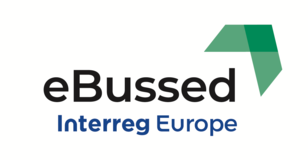In the Utrecht region in the Netherlands, stakeholders Province of Utrecht, University of Applied Sciences Utrecht, transport company Qbuzz and knowledge centre CROW have worked together on two actions to gain more insight into the performance of the ZE buses and the emissions involved. Also, they have worked to gain more insight on cost reductions and avoiding congestion on the grid for electricity. All stakeholders wish to gain experience about technology, (prevention of) grid congestion and learn from business cases for smart charging.
Action 1: Monitoring e-buses
Province of Utrecht is preparing the Public Transport (PT)-Tender Concession 2025-2035. Tendering PT in the Netherlands is about awarding the concession for PT for a specific period, included with buying buses and operating the PT. Long-term agreements are made that the company who receives the permit must adhere to and during the period there is public control. This means that a high level of communication is needed during the period of the concession between province and transport companies, regarding the policy-targets for 2028 -100% Zero Emission PT- and operational ZE-goals according to the plan-do-check-act-cycles.
Data on the performance of the e-buses are available from the transport company, from the region and on a national level. For example, on the planned usage of e-busses versus the actual usage, or the total amount of kilometres all busses (diesel or electric) have driven, was it as planned? To compare the data, for example on level of carbon-emission, of the region versus the rest of the Netherlands a tool from knowledge centre CROW has been used.
The knowledge centre CROW has a handy online tool providing national and regional data on CO2 emission and energy consumption. It gives an extensive benchmark to compare their efforts and results with those of other regions. It is possible to generate a separate report from each region.
The results lead to a new Utrecht Monitoring plan, a new dashboard for PT that is now operational and new agreements on the operational monitoring by PT companies on a daily basis.
Action 2 Peek shaving with storage at the e-bus depot
The Netherlands is facing a network congestion problem. The solutions from this pilot can contribute through new knowledge among all involved stakeholders. That would be good for the further scale up of e-buses, other forms of transport, in fact for the entire energy transition task in the Netherlands.
Stakeholders Province of Utrecht, University of Applied Sciences Utrecht, University of Utrecht, municipality of Utrecht, security region Utrecht (VRU), network operator Stedin and transport company Qbuzz (U OV) have worked together on this pilot. We have used batteries from old e-midibuses and gave them a second life for the purpose of storing electricity.
The project has been slightly delayed due to the realization of a test set-up on the e-bus depot taking more time and effort than expected. Safety played a major role in the delay, because in early January there was a fire at the Westraven bus depot. That made all stakeholders alert to the conditions of housing the batteries: safety is a relevant issue.
All stakeholders are interested in the outcomes of the pilot, because in case of positive outcomes, this knowledge can be used for further roll-out and scaling up for example with e-freight traffic and grid congestion problems. The test set-up is realized, the testing still takes place. We expect to have results in Q3 of 2023. The Province of Utrecht will then make the results available for interested parties.











